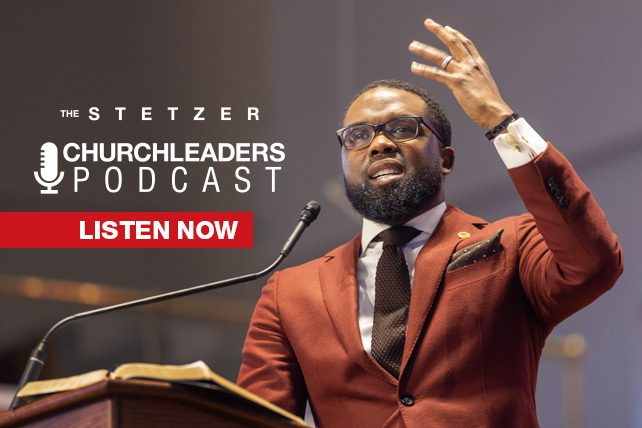“My life is a laboratory for the Word of God. It is where in my marriage and in my parenting and in my pastoral leadership and in the private recesses of my heart, God does His surgical work so that there is some authenticity behind the words that I proclaim.”
“Part of the theological formation that most students experience is that we are given one way to do theology. And the problem with that is the one group that authorizes that curriculum or that way tends to be white men…I think the failure is that theology and doctrine and the formulation of doctrine and interrelationship between doctrine lead to very different emphasis depending upon who’s doing it.”
“If you can listen to the heartbeat of theological reflection from other ethnic camps, then it’s going to bring some color to your preaching, pun intended.”
“Sometimes we preach down and I get it. You know, some people are like, ‘We want to make it accessible,’ but I think you can make preaching accessible and still preach up.”
“I think 250 years of chattel slavery, 14 years of failed reconstruction, 73 years of Jim Crow, and now the new Jim Crow has turned the perch from which Black people experience life and therefore the perch from which Black people experience the gospel. It’s the same gospel, but it really does lead to different emphasis. And so if you would diversify and incorporate into your hearing the voices of some of the best of Black preaching, I can guarantee you, your preaching will graduate.”
“I don’t think you want to do what Rick Robinson calls a ‘culture grab’…find the relationship between the way I would preach this passage and the way you would and discern some distinctions.”
“Get in dialogue with some other non-like-you kind of preachers to hear how they process the text. Because although it’s the same text and although it offers the same truth, it is layered in its application.”
“I greatly admire preachers who can say a lot more than I do with far fewer words. I also greatly appreciate those who incorporate what I call a sensory reading of the text.”
“One mistake is to not read the text enough…It is a benefit to read that passage like 20 times before you get to work on it. A common mistake is thinking you know everything that there is to know in there before you get to it.”
“There’s a heavy emphasis on executing the text in some of our seminaries and not enough emphasis on exegeting the people and exegeting culture.”
“I’m relying on the Holy Spirit in preparation to reveal to me what I cannot see on my own. All right, that’s where it starts…but I’m learning to trust the Spirit of God as pockets open in preaching and not to be tied to my manuscript.”

